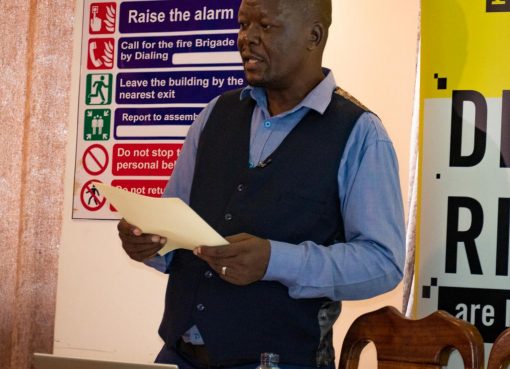The small claims court has handled over 6000 cases and led to recovery of claims worth over Sh1 billion since its establishment in April 2021.
The court came as a big relief to many small and medium size entrepreneurs who could not afford expensive legal battles to recover their hard-earned money.
The formation of the small claims court was one of the legal reforms undertaken to fast track recovery of money owed with the determination time frame capped at six months.
Director of Business Reforms and Transformation at the State Department of the East African Community (EAC) and Regional Development Mr. Odede Kidenda told members of the business community in Nakuru that the court was set up to unlock hurdles that deny access to justice for small commercial disputes.
This, he noted, was intended to ensure expeditious dispensation of claims involving small and medium enterprises (MSMEs) with a view to unlocking finances for capital investment.
Kidenda told the meeting that the state department for EAC and Regional Development was committed to creating conducive environment for small businesses to thrive while taking advantage of the huge market available within the East African regional bloc.
“We want to simplify the art of doing business so that our entrepreneurs can thrive,” he said.
In the past, small entrepreneurs watched helplessly as a few unscrupulous individuals either refused to pay for services delivered or backed out in the midst of a contract leaving small scale traders counting huge losses.
Such traders, already struggling to make ends meet, did not have the capacity to hire lawyers to pursue their money and in most cases, ended up losing it.
However, the Small claims court has given them a ray of hope as it is not only expeditious but also cuts down on legal costs and time.
The Small Claims Court is established by the Small Claims Act 2016. This a subordinate court in the structure of the court system in Kenya under Article 169 (1) of the Constitution with a monetary jurisdiction of matters not exceeding Sh1 million.
The establishment of the courts is part of an initiative to enhance the ease of doing business in the country. The courts are intended to reduce backlog of cases by having disputes resolved through simple, inexpensive and expeditious procedures, thus enhancing access to justice.
The main objective of the court is to guarantee the right of access to justice as envisioned under Article 48 of the Constitution through simplicity of procedure, timely disposal of proceedings, fairness of process and reasonable court fees.
The court is designed to settle civil and commercial disputes in a timely manner with minimal rules, fewer formalities and less technicalities. It is mandated to provide a judicial determination of disputes involving small amounts of money not exceeding Sh1 million.
The jurisdiction of the Court includes determining any civil claims relating to contracts for sale and supply of goods, money held or received, compensation for personal injuries.
The Court shall be presided over by an Adjudicator who is an advocate of the High Court of Kenya with at least three (3) years’ experience.
Section 32 of the Act provides for an exclusion of the Court to the strict rules of evidence and may admit as evidence any oral or written testimony, record, or other material even though the same is not admissible as evidence in any other Court under the law of evidence.
Section 34 provides that all proceedings shall be heard and determined on the same day or on a day-to-day basis until final determination. The court has to hear and determine a matter within 60 days (2 months) from the date it was instituted.
The Court may only adjourn the hearing of any matter under exceptional and unforeseen circumstances which shall be recorded and be limited to a maximum of three adjournments.
A party can appear in court in person or through a representative who need not be an Advocate of the High Court of Kenya.
By Jane Ngugi




